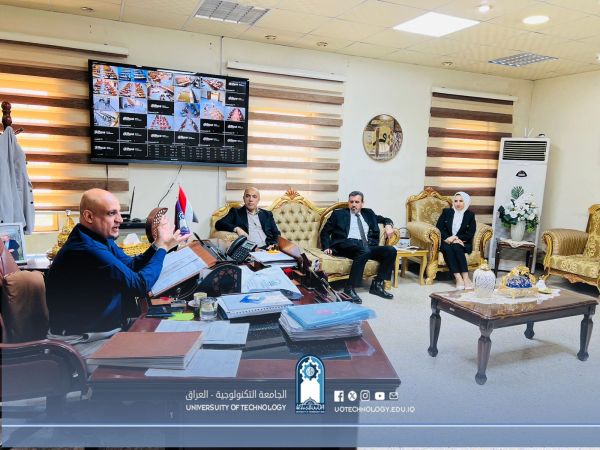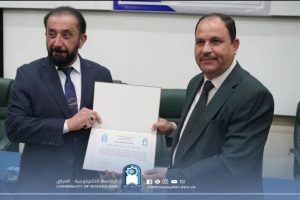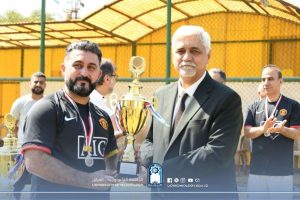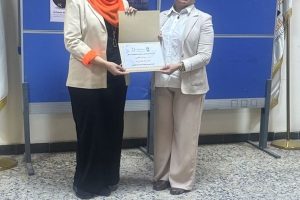
Department of Electromechanical Engineering Strengthens Scientific and Academic Cooperation with the Petroleum Training Institute
As part of strengthening scientific and academic cooperation, the Head of Electromechanical Engineering Department, Asst. Prof. Dr. Ghassan Abdul Hussein Bilal, received a delegation from the Petroleum Training Institute (a division of the Iraqi Ministry of Oil) in his office.
The delegation from the Petroleum Training Institute included:
- Saeed Ahmed Rahim, Assistant Director of Petroleum Training Institute in Baghdad.
- Yousef Jawad Kadhim, Director of Curricula and Examinations Department at the Institute.
- Ali Nouri, Head of the Renewable Energy Unit at the Petroleum Training Institute/Baghdad.
The meeting, attended by the Head of Oil and Gas Equipment Engineering Department, Prof. Dr. Mahmoud Mustafa; Prof. Dr. Hussein Majeed Saleh; the rapporteur, Asst. Prof. Noura Saleh; and the head of Cultural Relations Division, Asst. Prof. Dr. Sundus Samir, discussed the draft proposals of memorandum of understanding to be signed between the Department of Oil and Gas Equipment Engineering and the Petroleum Training Institute.
During the meeting, the head of the department emphasized “the college’s keenness in particular, and the University of Technology in general, to strengthen its relations with government institutions.” He added, “This meeting represents an important step towards exchanging expertise and raising the academic level of students and researchers.”
He pointed out “the importance of bilateral academic relations and developing their contexts in light of areas of understanding, cooperation, and mutual interest, in accordance with the scientific requirements under which Iraqi institutions operate.”
The memorandum of understanding to be signed between the two sides includes several topics:
- The exchange of books and resources.
- Giving tutorial and practical lectures.
- Cooperation in the field of e-learning.
- Joint supervision of graduation projects.
- Participation in scientific discussion committees for both parties’ graduation projects.
- Holding workshops and training courses.
- Cooperation in the field of summer training.
- Conducting joint scientific research.
- Publishing in journals listed in international databases.
- Holding joint scientific conferences.
- Providing scientific, research, and technical consultations.




